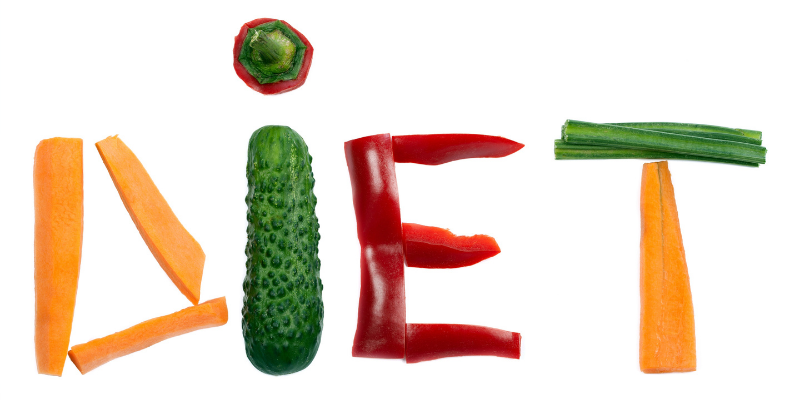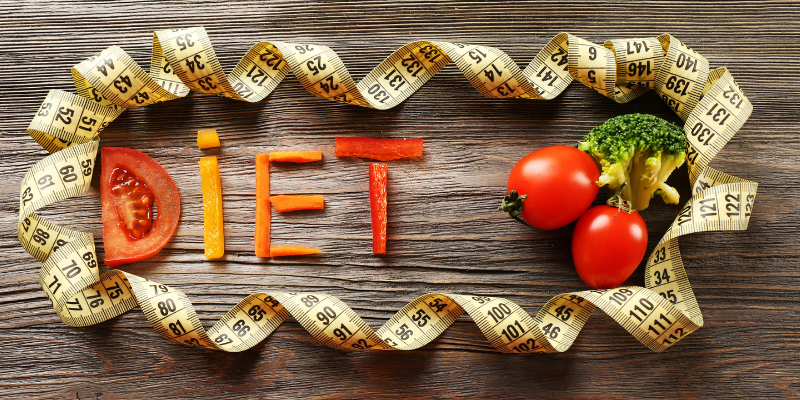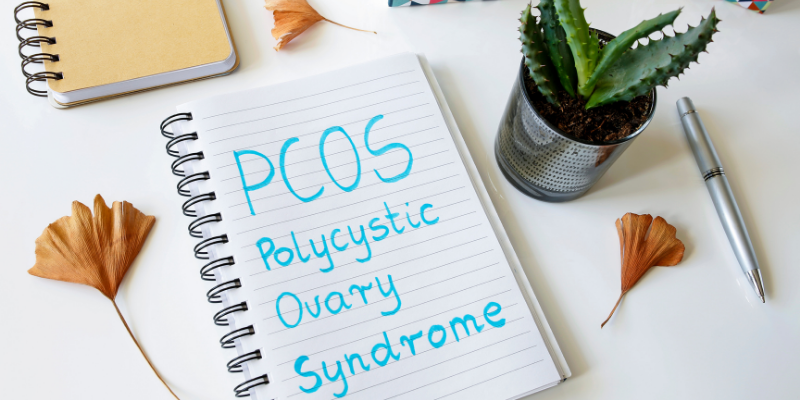7-Day PCOS Indian Diet Plan For Weight Loss
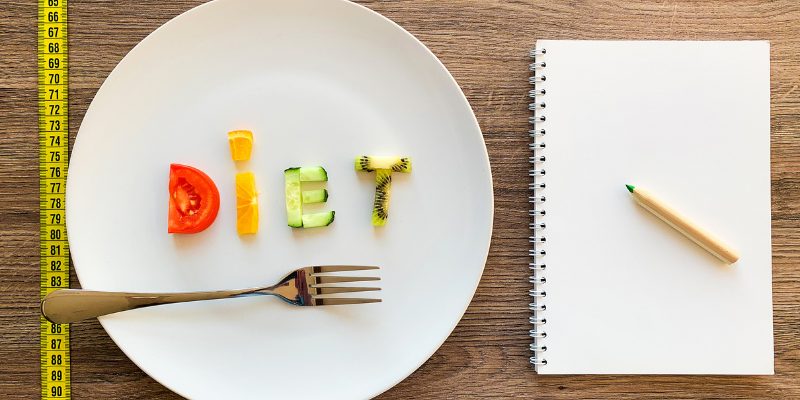
Weight loss can be challenging for women with Polycystic Ovary Syndrome (PCOS), while weight gain is a common effect of the condition. Research suggests that keeping your weight under control helps manage the symptoms, as there is no cure for PCOS. If you are struggling with this, here is a simple and practical Indian PCOS diet plan for weight loss along with foods you should avoid and expert tips on how to achieve weight loss for PCOS.
PCOS And Weight Gain
PCOS affects nearly 6-8% of women in their reproductive years. It is a condition where the body goes through a hormonal imbalance, producing more male hormones or androgens. This can cause excess body hair growth, acne, irregular periods, and weight gain. As obesity and weight gain are two common effects of PCOS, losing excess kilos and managing your ideal body weight becomes challenging due to hormonal imbalance and insulin resistance associated with the condition.
Importance Of A Diet For PCOS
PCOS makes it difficult for the body to utilise insulin responsible for the conversion of carbohydrates into energy. It creates resistance causing insulin and sugar to build up in the bloodstream. High insulin levels prevent lipolysis (or breaking down of fat), making weight loss difficult. Following a PCOS-specific diet to regulate insulin production stimulates lipolysis, helping in weight loss and weight management.
Benefits Of An Indian Diet For PCOS Weight Loss
Traditional Indian meals are functional, offering additional nutritional value beyond the essential vitamins and minerals. They prevent the risk of disease by supporting the immune system, aid weight loss, and regulate blood sugar levels.
Here are some of the benefits of following an Indian diet plan for PCOS:
- The wide variety of vegetables and whole grains make the Indian diet naturally rich in fibre, essential in maintaining the optimal glycaemic load. Foods with a low glycaemic index prevent insulin levels from fluctuating. For example, rice has a high glycaemic index compared to dal. When you eat it in the form of khichdi, which is a combination of both, the glycaemic index becomes optimal.
Expert Says
Why is the glycaemic index (GI) of the diet important?
Insulin is a hormone that helps the body utilise energy from food. Many women with PCOS are resistant to its effects, resulting in higher insulin levels in their blood.
Energy- restricted low glycaemic index diet helps improve glucose metabolism and insulin resistance. It is ideal for women with PCOS because of its higher dietary compliance and its efficiency in reducing insulin resistance, hyperandrogenism, hirsutism, acne, and menstrual irregularities.
Substituting high-GI items for low-GI foods may be beneficial as they can increase the body’s capacity to react to insulin in women with PCOS. A low-GI diet can also promote regular periods accompanied by weight loss. The key is to reduce your intake of processed foods and increase your fibre. (1) (2)
- Fermented foods like idli, dosa, or curd, which are staples in the Indian diet, are rich in probiotics. They help in maintaining the health of the digestive system and aid in weight loss.
- Indian meals use a variety of spices and herbs containing antioxidants and anti-inflammatory properties, which help manage symptoms of PCOS.
- Indian diet has several low-calorie options for snacking like jowar or wheat puffs, makhana, and roasted chana. You can opt for these relatively healthier snacks instead of packaged foods, which are generally high in preservatives and can be harmful to the body.
Foods To Eat For PCOS Weight Loss
The main goal of PCOS diet is to avoid simple carbohydrates and reduce the meal’s glycaemic load.
Here is the list of food items you can choose from:
NOTE:
The effects of PCOS vary from person to person and you must consult a doctor before charting your diet plan.
- Whole Grains And Millets: Whole wheat, daliya, brown rice, jowar, bajra, ragi, oats, and barley are great options for your main staple. These are rich in fibre and complex carbohydrates. They help maintain a balance in blood sugar levels, as they take longer to digest and get absorbed into the bloodstream.
- Pulses: Pulses is another food group with a low glycaemic index and helps regulate insulin levels. Add moong dal, chana dal, split peas, dried beans, soyabean, chickpeas and other pulses to all your meals.
- Lean Protein: Proteins help regulate PCOS as they help synthesise different hormones like insulin, estrogen and testosterone. Make sure you add lean protein sources like egg, chicken, fish, tofu, skimmed milk, and curd. Note that you must limit your dairy intake to two servings per day if you also suffer from PCOS-induced acne.
- Vegetables: Add high-fibre vegetables like green leafy vegetables, beans, cauliflower, broccoli, guard vegetables and carrots liberally to all your meals. They help slow down digestion and maintain blood sugar levels, which eventually help in reversing insulin resistance.
You need 25 gms of fibre every day. Add cooked vegetables, salads and unstrained soups to your daily menu.
- Fruits: Fruits are rich in vitamins, minerals, fibre, and antioxidants. Enjoy seasonal fruits like melons, apples, berries, banana, guava, papaya, pineapple, pomegranate, and citrus fruits. You can also satisfy your sweet tooth with fruits.
NOTE:
Make sure that you have them in limited quantities. Fruits have varying amounts of sugars and eating large servings can cause a spike in blood sugar levels.
- Spices And Herbs: The use of various spices and herbs makes the Indian diet rich in antioxidants. Turmeric, ginger, clove, cinnamon, fenugreek, mint, and basil are all functional foods with various health benefits and can help reduce symptoms of PCOS.
- Nuts And Seeds: A handful of nuts (20gms) like almonds, walnuts, sesame seeds, pumpkin seeds, sunflower seeds, and flaxseeds add to good fats, which are also helpful in managing PCOS. You can either add the seeds to your fruit bowl as toppings or enjoy a lovely chutney with meals.
7 Foods To Avoid For PCOS Weight Loss
Striking off the following foods from your diet chart can help you maintain your optimal weight.
- Refined And Processed Foods: You will find refined flours and processed foods across supermarkets. These are high in sugar and calorie content and have little nutritional value, hence avoid them.
- Fried Foods: Saturated and trans-fats increase the production of estrogen and those with PCOS must avoid them.
- Sweets: Avoid excess consumption of Indian sweets as they can spike blood sugar levels and increase the levels of insulin, which have adverse effects on PCOS symptoms.
- Oils: Vegetable oils are processed and contain a significantly high amount of omega-6 fatty acids. Choose from healthier options like olive oil, coconut oil, avocado oil or ghee.
- Starchy Vegetables: Vegetables such as potatoes and yams are rich in starch content and can cause a hormonal imbalance.
- Processed Fruit Juices And Concentrates: Fruits are very rich in fibre, but fruit juices are not. Packaged fruit juices and concentrates contain artificial sweeteners adding zero nutritional value to your diet. Opt for whole, fresh fruits instead.
- Red Meat: Ready-to-eat, processed meats like sausages, ham, salami and bacon have a high content of salt and preservatives. Red meat like mutton, pork and beef are high in cholesterol and saturated fats. Avoid them as they can lead to further hormonal imbalance.
7-Day PCOS Indian Diet Plan For Weight Loss
Diet plays a critical role in maintaining optimal weight and combating symptoms of PCOS. Women with PCOS must stick to a diet chart that ensures adequate essential nutrients while keeping the high sugars and fats at bay. Make sure you consult a certified nutritionist for a suitable diet plan.
Macronutrient Distribution:
Note:
To determine your unique body requirements, consult a nutritionist.
Total Energy:
20-25 Kcals/kg for ideal body weight. (20 calories in case of obesity and 25 for overweight patients)
Distribution for a 1200-1300 calorie diet:
Carbohydrates: 60–65 % of total energy – 180 to 195 gms
Proteins: 20–25 % of total energy – 60 to 75 gms
Fats: 15–17 % of total energy – 20 to 23 gms
Here is a simple and practical 7-day Indian diet plan for both vegetarians and non-vegetarians. You can adapt it to your unique needs and lifestyle.
Day 1
- Breakfast @ 9 am: 1 cup ragi porridge +1 boiled egg
- Mid-morning meal @ 11 am: 8 halves of walnuts
- Lunch @ 1pm: 1 cup brown rice + 1 cup dal cooked with any green leafy vegetable + 1 cup vegetable curry
- Mid-afternoon meal @ 3 pm: Cut fruits with pumpkin and sunflower seeds
- Evening snack @ 5pm: Vegetable smoothie
- Dinner @ 7pm: Sautéed chicken with vegetables + buttermilk
Day 2
- Breakfast @ 9 am: 1 nachani (millet) dosa + green chutney + tea/coffee without sugar
- Mid-morning meal @ 11 am: Cut fruits with pumpkin and sunflower seeds
- Lunch @ 1pm: 1 multigrain roti + 1 cup dal + 1 cup vegetable + salad
- Mid-afternoon meal @ 3 pm: 8 almonds and 1 glass buttermilk
- Evening snack @ 5pm: Roasted tomato soup + 1 boiled egg
- Dinner @ 7pm: 1 Millet roti + 1 cup kadhi + green leafy vegetable
Day 3
- Breakfast @ 9 am: 1 cup daliya upma with vegetables + tea/coffee without sugar
- Mid-morning meal @ 11 am: 1 cup fruits+ green tea
- Lunch @ 1pm: 1 cup brown rice pulav + vegetable raita
- Mid-afternoon meal @ 3 pm: 1 cup sprouts bhel
- Evening snack @ 5pm: 1 glass apple smoothie
- Dinner @ 7pm: 1 multigrain roti+ 1 cup paneer/egg curry+ curd
Day 4
- Breakfast @ 9 am: 2 idli + sambar + tea/coffee without sugar
- Mid-morning meal @ 11 am: 1 bowl oats with fruits and curd
- Lunch @ 1pm: 1 methi thepla with vegetable curry + curd salad
- Mid-afternoon meal @ 3 pm: Cut fruits with pumpkin and sunflower seeds
- Evening snack @ 5pm: 1 boiled egg + carrot soup
- Dinner @ 7pm: 1 cup brown rice+ chicken/mushroom curry+ I cup curd + salad
Day 5
- Breakfast @ 9 am: 1 cup oats porridge with fruit toppings
- Mid-morning meal @ 11 am: 1 cup jowar/wheat puffs+ buttermilk
- Lunch @ 1pm: 1 Multigrain roti +1 cup dal + 1 cup vegetable+ salad
- Mid-afternoon meal @ 3 pm: Cut fruits with pumpkin and sunflower seeds
- Evening snack @ 5pm: 1 cup chana masala+ tea/coffee without sugar
- Dinner @ 7pm: Dal/okra curry + 1 cup brown rice + grilled chicken/egg plant
Day 6
- Breakfast @ 9 am: Veg oats upma+ tea/coffee without sugar
- Mid-morning meal @ 11 am: Green tea+ nuts
- Lunch @ 1pm: 1 Multigrain roti+ 1 cup dal + 1 cup vegetable + raita
- Mid-afternoon meal @ 3 pm: Cut fruits with pumpkin and sunflower seeds
- Evening snack @ 5pm: 1 cup sprout salad + tea/coffee without sugar
- Dinner @ 7pm: Broccoli almond soup + sautéed chicken/fish/tofu with vegetables
Day 7
- Breakfast @ 9 am: Vegetable upma + tea/coffee without sugar
- Mid-morning meal @ 11 am: 1 boiled egg
- Lunch @ 1pm: 1 cup brown rice + rajma + raitaMid-afternoon meal @ 3 pm: Nuts + buttermilk
- Evening snack @ 5pm: Cut fruits with pumpkin and sunflower seeds
- Dinner @ 7pm: Spinach soup+ grilled fish/ paneer with sautéed vegetables
How to Lose Weight with PCOS? Expert Tips
- Do not skip meals. This leads to hunger pangs and binge eating, resulting in weight gain.
- Have small, frequent meals (5-6 meals per day, as mentioned in the diet chart), as it helps reduce insulin surge and sugar release.
- Replace refined and regular wheat flour with multi-grain or millet flours. Consider adding bran while kneading the flour. You can also opt for oats or quinoa.
- Eat salads, raita, and soups to help reduce sugar surge and control cholesterol levels, both of which are essential for weight loss.
- Satisfy your sweet cravings with fruits.
- Have a protein-rich diet, as it will help regulate your blood sugar levels.
- Include at least 150 minutes of medium-intensity physical activity per week to keep your weight in check.
- Cinnamon is proven to be beneficial in reducing PCOS symptoms by improving the antioxidant status and lipid profile. You can take cinnamon powder with warm water.
- Have green juice. (A combination of mint, bottle guard, cucumber, lemon, and ginger helps detox on an empty stomach in the morning). This drink, rich in antioxidants, helps reduce inflammation and symptoms of PCOS.
Can PCOS be cured with diet?
There is no cure for PCOS, but you can manage the symptoms associated with this syndrome by consuming a wholesome diet. As already mentioned, include foods with a low glycaemic index, healthy fats, lean proteins in your diet and supplement them with enough physical exercise. As already mentioned above, this helps maintain your ideal body weight and in keeping symptoms of PCOS under control.
Expert Says
Omega-3 for PCOS
Omega-3 fatty acids may be a unique treatment for PCOS. Omega -3 helps in increasing the sensitivity to insulin and reducing inflammation and plays an important role in immune regulation, cellular differentiation, and ovulation.
Supplementing your diet with omega-3 fatty acids helps in reducing cholesterol absorption and LDL synthesis, thus improving various cardio-metabolic risk factors in women with PCOS. (3) Research also shows that they may reduce the risk of PCOS in women. (4) Include plant oils such as flaxseed, soybean, and canola oils, fish and other seafood, nuts and seeds such as flaxseed, chia seeds, and walnuts in your diet. You can also include fortified products or supplements in your diet by consulting your doctor or nutritionist.
Takeaway
PCOS may not have a cure, but you can manage the condition with the help of a healthy diet plan and regular exercise suitable to your needs and your lifestyle. This can be difficult without help or supervision. So we advise you to consult a specialist to study your specific symptoms and prescribe a suitable treatment plan.
Frequently Asked Questions On PRP Hair Treatment
Simple changes in your diet and regular exercise can help in weight management. Consult a doctor for a proper diet and exercise plan for PCOS.
Traditional Indian meals are wholesome and nourishing, which makes it suitable for PCOS.
Yes, refined white rice lacks fibre and triggers a carb craving cycle. Simple sugars instantly lead to a spike in blood sugar levels, which in turn increases insulin secretion. This excess insulin will lead to a drop in sugar levels, leaving you craving more sugar.
Even though bananas are rich in carbs and sugar, they also contain fibre, making them foods with a low-medium glycaemic index (40-60 depending on the ripeness). It is safe to consume unripe bananas than ripe ones but in moderation.
Our certified subject matter experts do extensive research and collate facts from reputed scientific journals and international studies to create informative and engaging articles related to all your dermatology concerns. They strive to help you decipher medical jargon, distinguish fact from fiction and overcome paranoia. Our qualified medical board or expert panel goes a step further to verify these facts based on their rich academic knowledge, vast clinical experience and critical industry insights to ensure you consume only medically accurate content that empowers you to make informed decisions about your hair and skin-care treatments and weight management. Check out our Editorial policy for further details.
https://pubmed.ncbi.nlm.nih.gov/15944216/
https://www.ncbi.nlm.nih.gov/pmc/articles/PMC2861983/
https://pubmed.ncbi.nlm.nih.gov/32151755/
https://www.mdpi.com/2072-6643/11/6/1222
https://glycemicindex.com/gi-search/
Read This Next
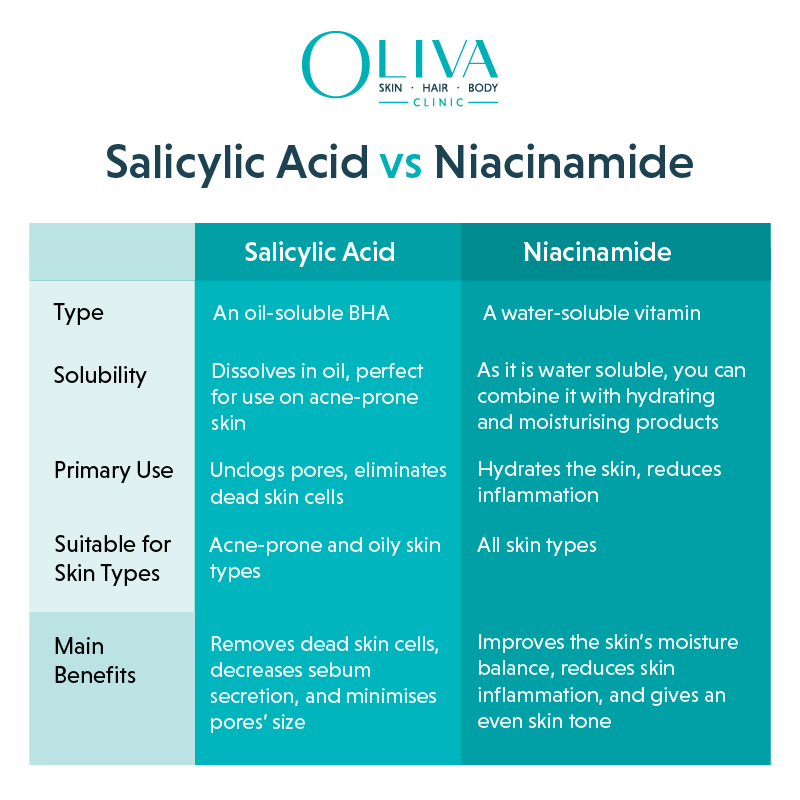
Salicylic Acid vs Niacinamide: The Ultimate Guide to Clear and Healthy Skin

Foods That Cause Pimples: Know What Foods To Avoid For Acne
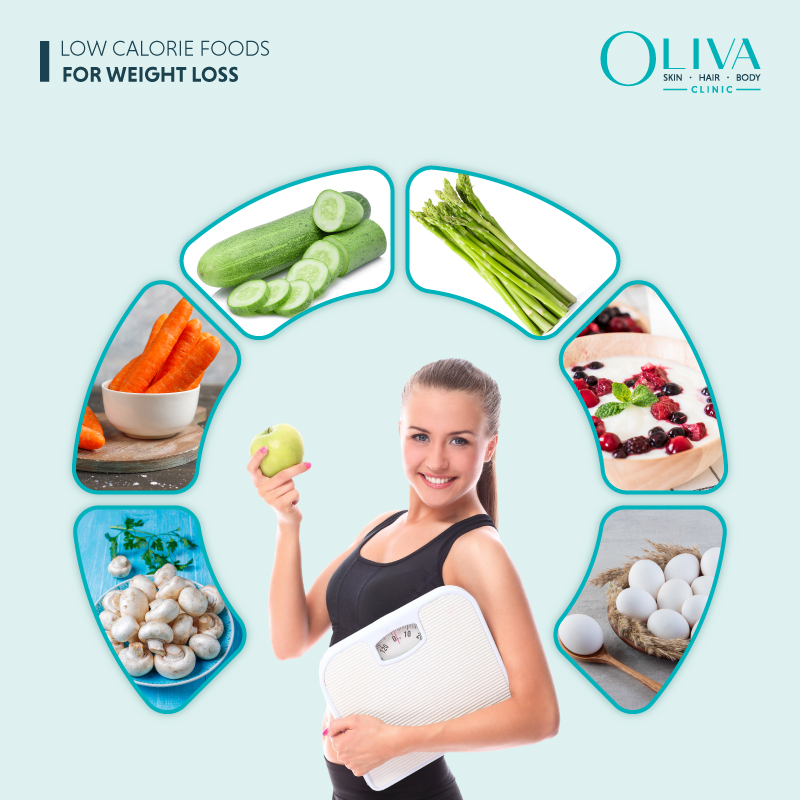
Top 22 Low Calorie Foods For Weight Loss Approved By Nutritionist
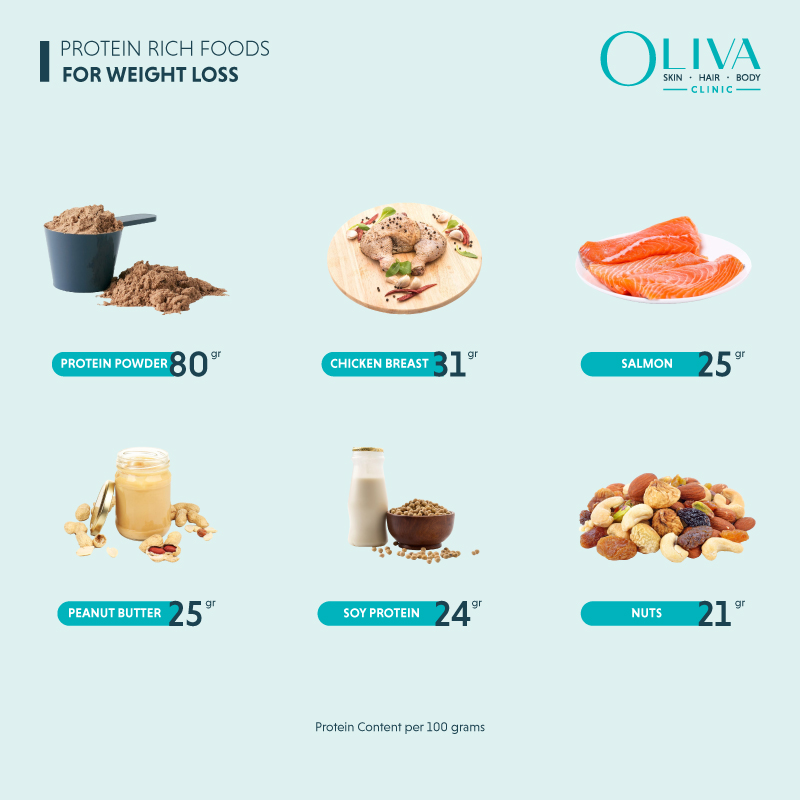
22 High Protein Foods For Weight Loss Approved By Nutritionist

Best Laser Hair Removal Clinics in Kochi: Cost, Results & Locations


